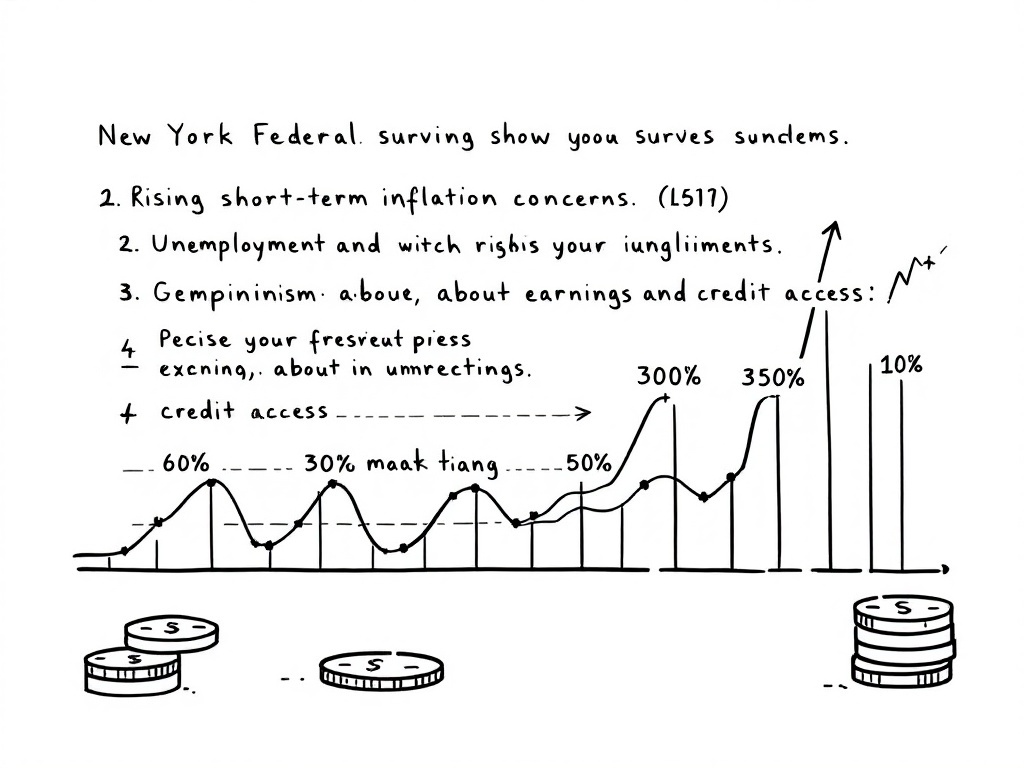New York Fed Survey Highlights Rising Short-Term Inflation Concerns

New York, Monday, 14 April 2025.
Short-term inflation expectations rose to 3.6%, the highest since October 2023, amidst growing unemployment fears and pessimism about earnings and credit access.
Inflation and Unemployment: A Deteriorating Outlook
The Federal Reserve Bank of New York’s March Survey of Consumer Expectations reveals a concerning rise in short-term inflation expectations, reaching 3.6%, the highest since October 2023. This increase is driven by consumer anticipation of higher costs for essentials such as food, rent, and medical care. Notably, the expectation for medical cost inflation has surged to 7.9%, while rent is projected to rise to 7.2% [1][2].
Economic Pressures Amid Tariff Concerns
Simultaneously, unemployment concerns have intensified, reminiscent of the early COVID-19 period. The survey reported a significant increase in the mean unemployment expectations, which climbed to 44%, marking the highest level since April 2020. This is compounded by the perceived probability of job loss, which rose by 1.6 percentage points to 15.7% [1][3][4]. These developments come on the heels of a global trade war and the imposition of significant tariffs, fueling fears of inflationary pressures amid an already strained economic landscape [5].
Stagnating Income Growth and Financial Uncertainty
Household income growth expectations have also declined, with the median expected growth in household income falling to 2.8%. This is below the 12-month trailing average of 3.0%, reflecting wider concerns about personal financial stability. Additionally, households report difficulties in accessing credit, with many indicating a worsened financial situation compared to the previous year [1][2]. The broader implications suggest mounting challenges for Federal Reserve policymakers, who are faced with balancing inflation management with sustaining economic growth [3][4].
Monetary Policy and Market Responses
The financial community’s apprehensions are mirrored in reduced stock market expectations, with only 33.8% of respondents optimistic about market performance over the next year. This marks the lowest confidence level since June 2022 [1][4]. In response, the Federal Reserve faces the challenging task of adjusting monetary policy to address these rapid changes in economic sentiment. Market-watchers anticipate multiple rate cuts over the year, putting additional pressure on an already volatile market environment [4].